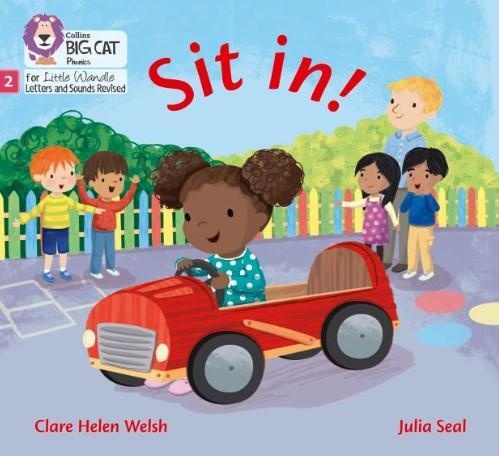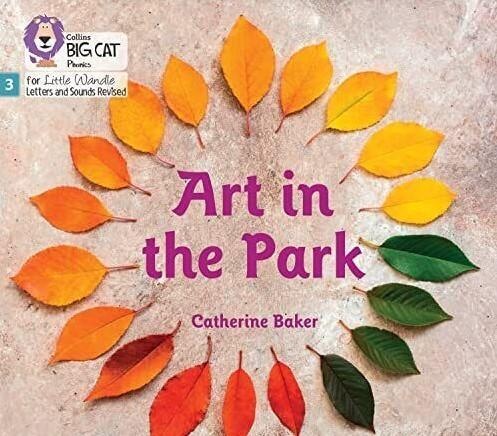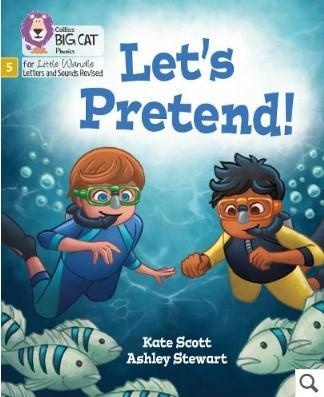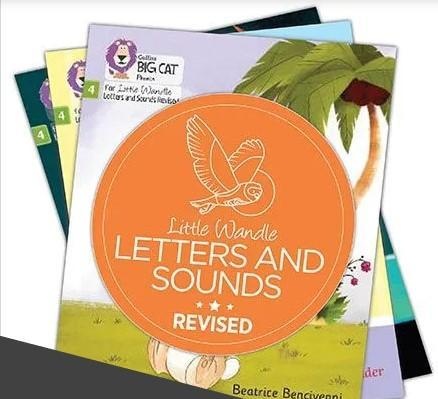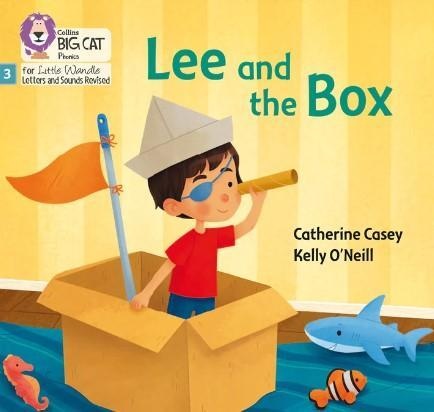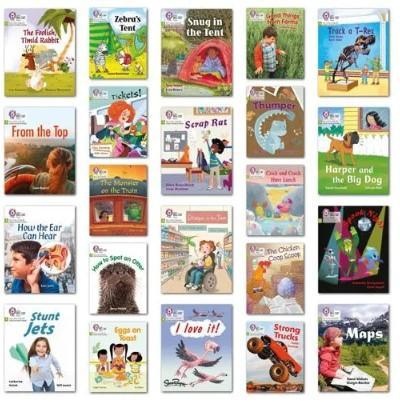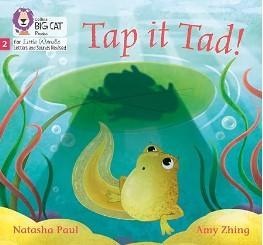Early Reading & Phonics
We teach reading through Little Wandle Letters and Sounds Revised, which is a systematic and synthetic phonics programme. We start teaching phonics in Early Years and follow the Little Wandle Letters and Sounds Revised progression, which ensures children build on their growing knowledge of the alphabetic code, mastering phonics to read and spell as they move through school. As a result, all our children are able to tackle any unfamiliar words as they read. At Weeke Primary, we also model the application of the alphabetic code through phonics in shared reading and writing, both inside and outside of the phonics lesson and across the curriculum.
An Introduction to our Phonics - Little Wandle
A short video explaining the phonics approach we use in school
Phonics for EYFS & Year 1
In Reception, we build from 10-minute lessons, with additional daily oral blending games, to the full-length lesson as quickly as possible. Each Friday, we review the week’s teaching to help children become fluent readers. Children make a strong start in Reception: teaching begins in Week 2 of the Autumn term. Children in Reception are taught to read and spell words using Phase 2 and 3 GPCs, and words with adjacent consonants (Phase 4) with fluency and accuracy.
Children in Year 1 review Phase 3 and 4 and are taught to read and spell words using Phase 5 GPCs with fluency and accuracy. Daily Keep-up lessons ensure every child learns to read. Any child who needs additional practice has daily Keep-up support, taught by a fully trained adult. Keep-up lessons match the structure of class teaching, and use the same procedures, resources and mantras, but in smaller steps with more repetition, so that every child secures their learning.
-
Little Wandle Website A more detailed explanation of the approach we take when teaching and supporting your child to learn to read with fluency
Want to gain an in-depth understanding of our approach?
We want all our children to become fluent in reading. The pace at which we learn in school is different for every child and the scheme allows for teachers to adapt and cater for all needs. The approach is also very different to how we learnt to read. We ask that parents and carers work with the school and the professionals. If you want to find out more why not visit the Little Wandle website and use the useful information for parents in our section on Reading beyond the classroom.
Phase 2 sounds taught in Reception Autumn 1
The Phase 2 sounds taught in Reception Autumn 1 video is designed to help understand the schools approach when using Little Wandle Letters and Sounds Revised.
How we teach blending
A short video to support with the understanding of how the school teaches children letter and sounds with a focus on blending.
Assessment in Early Reading
Little Wandle fluency assessments are used alongside the Year 1 Spring 2 and Summer 1 and 2 phonics assessments and continue to be used as the children move into Year 2. These one minute assessments are used to measure the fluency of the children in the final stages of Phase 5 reading books. The key factors when measuring fluency are:
- Accuracy
- Rate/automaticity
- Prosody/expression (pauses, intonation)
A reading rate of 90 words per minute is required to integrate comprehension whilst reading, but children are unlikely to be reading at this rate by the end of Year 1, which is why continued reading instruction is required in Year 2 to teach fluency and enable children to become readers for life. At Weeke we use the Little Wandle Fluency programme in Year 2 for those children who have completed Little Wandle Letters and Sounds Revised and are secure at reading the final level of books. This programme uses vibrant, diverse and engaging chapter books to make sure that every child can become a confident, fluent and motivated reader. Prosody is taught in every Little Wandle Fluency reading lesson, building on the familiar practice from the Little Wandle core programme reading practice sessions. Each fluency lesson includes repeated reading and has a clear focus so the children gain a repertoire of prosody practice.
What about the books?
When you child is in the early stages of Reading as a school we regularly assess and check their phonic knowledge, fluency and many other skills. We want your child to feel confident in reading. During this period of development and progression, it is vital the children access the books we have sent home. Children can also access and build further knowledge in the world around them through taking books home from our library and having books read to them. Below is a sample of some of the books the children take home and learn in school for a week. You may find that your child is repeating the book more than once. Don't worry, it just means they need a little more exposure and support to grasp the knowledge and understanding.
My Child finds reading hard?
Reading is the key to unlock many doors in education, but like all learning for some it can take longer than others. Our Little Wandle Reading approach is designed and implemented to support all levels of reading. Within the scheme we have opportunities to be assessed along the way. Where a child may not progress onto the next level of books, the school evaluate the next steps and consider whether a repeat of the stage is necessary or a further intervention for support.
As a school we are not just looking for a child to jump through a 'Phonics screening check' but give them the knowledge, skills and understanding to read fluently and with confidence. At times this can be hard for parents who are traditionally used to going from one book to the next. You may find that your child is remaining on the same stage of book for some time. Be assured that during this time relevant and effective interventions are in place. If the time frame to moving on is increased, you can also support your child at home. For further guidance and support why not visit the Reading beyond the classroom section of our Reading Curriculum website.
